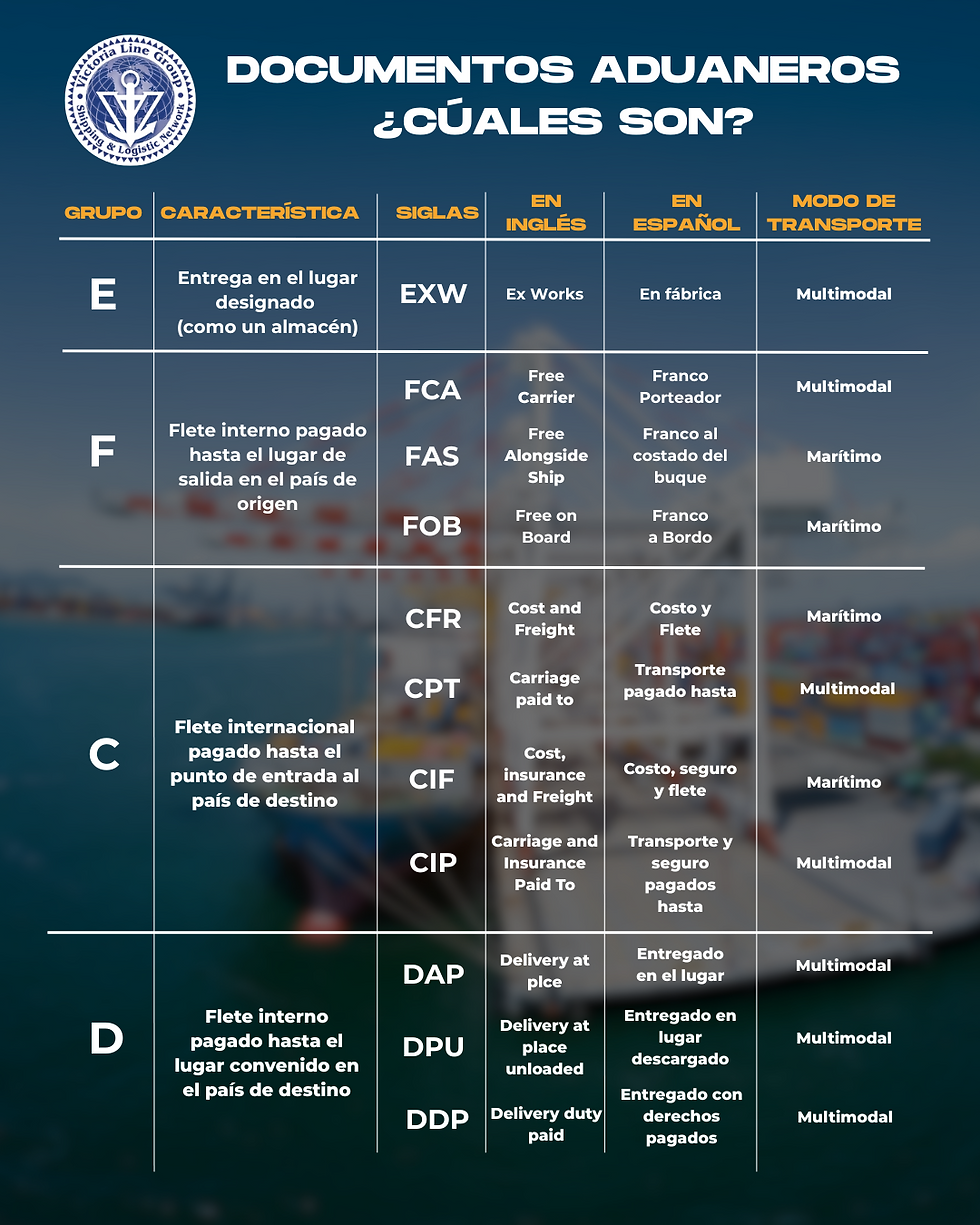What Are Incoterms and What Are They For? Quick Explanation
- web24201
- Aug 18, 2025
- 2 min read
What Are The Incoterms?
Incoterms (International Commercial Terms) are internationally recognized three-letter trade terms created by the International Chamber of Commerce (ICC). They define the delivery conditions of goods in international sales contracts. They are not mandatory legal rules but voluntary standards adopted by both seller and buyer to clarify key aspects of the international trade process.
What Are They For?
Cost allocation: Clearly specify who pays for transport, insurance, and customs procedures from start to finish.
Risk transfer: Establish the exact time and place when the risk (loss, damage, theft) passes from the seller to the buyer.
Place of delivery: Define the precise point where the seller’s responsibility ends and the buyer assumes responsibility for the goods.
Customs and documentation tasks: Clarify who is responsible for export, import, and obtaining customs documentation.
Avoiding misunderstandings: By using a common, standardized language, they reduce disputes and ambiguities in international contracts.

Key Features
Voluntary: Must be explicitly included in contracts. They do not apply by default.
Not all-encompassing: Do not cover price, ownership, quality, or warranties; these must be agreed upon separately.
Historical versions: Reviewed by the ICC since 1936, with updates in 1953, 1980, 1990, 2000, 2010, and the most recent version in effect being 2020.
Importance of precision: The chosen Incoterm should always include the exact location (e.g., “FOB Hamburg Port”) to avoid confusion.
Main Advantages
Clarity: Simplifies contracts by reducing lengthy clauses through globally recognized abbreviations.
Logistical efficiency: Facilitates planning for transport and insurance, according to the agreed terms.
Reduced disputes: Clearly specifying risks and costs minimizes misunderstandings.
In Summary
Incoterms are a standardized and voluntary set of international trade terms that allow buyer and seller to:
Know who pays for what.
Determine when and where risk is transferred.
Define the exact delivery point.
Assign customs responsibilities.
The fundamental purpose of Incoterms is to establish clear criteria for cost allocation and risk transfer between buyer and seller in an international sales contract.
If you need to import or export your goods, get in touch with us through our contact section.




Comments